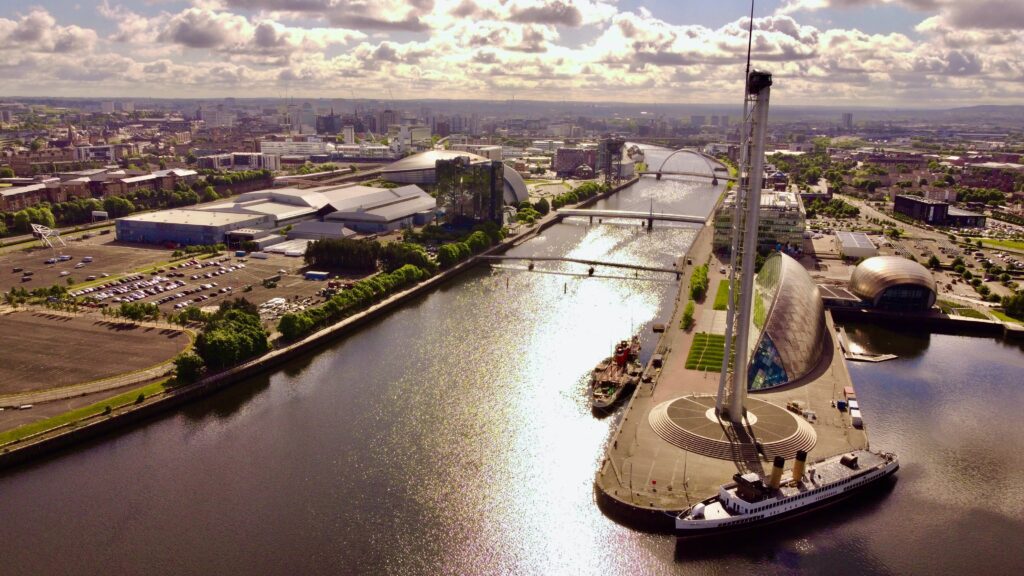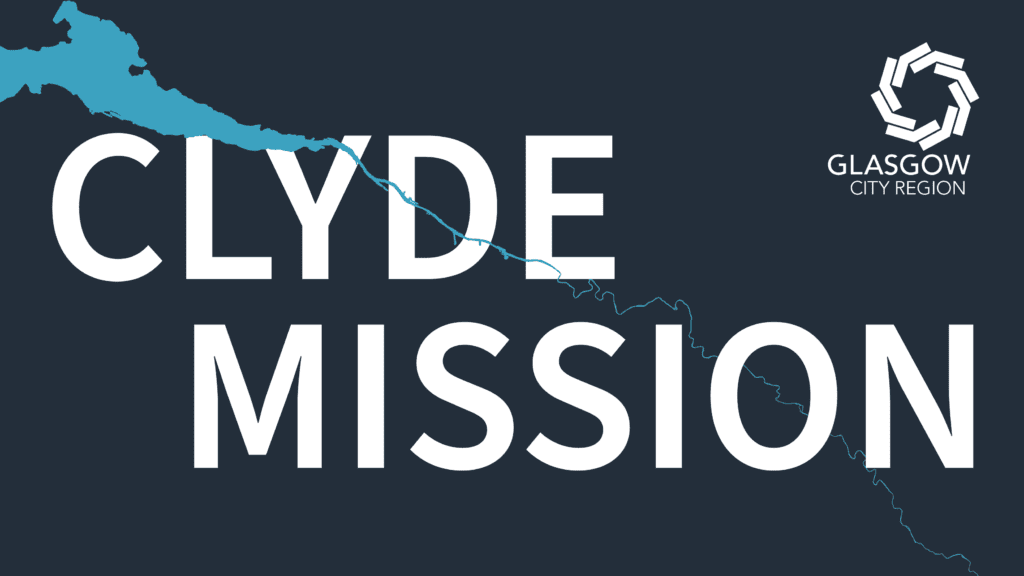Migration of Clyde Mission to Glasgow City Region
The First Minister has announced the transfer of the Clyde Mission regeneration programme to Glasgow City Region, as Scottish Government investment reaches more than £40 million.
The migration, from the Scottish Government administering the project, takes place as talks with local leaders are to begin on formally recognising the eight local authorities as a ’metro-region’ – to help drive growth, create more jobs and deliver benefits to communities.
The Clyde Mission has been working since 2020 to transform the riverside corridor running from Lanarkshire, through the city of Glasgow, to the sea – with investment support for green space and renewable energy initiatives as well as examining how more land can be identified for development.
An additional £1.5 million will be dedicated to the masterplan project, taking the Scottish Government’s overall investment to more than £40 million. This includes £25 million of previously announced funding for cutting edge heat decarbonisation projects that is being awarded to the partner local authorities.
First Minister Humza Yousaf said:
“As Scotland’s largest city, Glasgow’s success is fundamental to our success as a nation and our drive to create a wellbeing economy that is fair, green and growing. When Glasgow’s grows, Scotland grows – and by working in partnership with a stronger city region, we will make sure we realise its economic potential.
“We are transferring responsibility over the running of Clyde Mission from the Scottish Government to empower the city region, helping to attract new investment, create jobs and deliver prosperity and wellbeing for communities from Argyll to the Clyde Valley.”
Councillor Susan Aitken, Leader of Glasgow City Council and Chair of the Glasgow City Region Cabinet, said:
“This is a major step forward in the devolution of power to Scotland’s biggest city region, the only genuine metropolis in these islands north of Manchester.
“The handover to the eight local authorities of the responsibility to progress what remains the greatest untapped development opportunity in western Europe, provides many of the levers we need to address growth, productivity and the wellbeing of the 1.8 million citizens of the City Region, and to tackle the ingrained social and economic inequalities within many of Scotland’s most deprived communities.
“That is real transformational potential and allows us to seize the opportunity to accelerate one of the UK’s most diverse and competitive city regions and secure our aim of becoming its most innovative, inclusive and resilient economy by 2030.”
The FM continued:
“I am committed to working with the leaders in Glasgow region to explore all options for how the Scottish Government can work with them to boost the regional economy – from our joint work with the UK Government on an investment zone in the city, to engaging with them directly on their aspirations to be formally recognised as a metropolitan region.
“The city region is brimming with economic potential – from life sciences to renewables, from space to tourism, the regional economy is one of great strength and diversity. By working in partnership with a stronger city region, we will make sure we realise that potential.”

Background
The Clyde Mission seeks to recognise and use the River Clyde as a national, strategic asset. It focuses on using the land immediately adjacent to the river (within around 500 metres) as a national strategic asset and follows the Clyde from its origins in the Lowther hills through to the opening of the river between Gourock and Dunoon.
The new funding will provide Glasgow City Region and Argyll & Bute Council with an investment over three years (2023-26) for the development of a masterplan which will set out plans for stimulating growth of a sustainable, wellbeing economy in the Clyde Mission area and wider city region.
The Scottish Government has provided £13.6 million through Clyde Mission to 13 different projects within the Clyde Mission footprint. These projects will help to create jobs, regenerate places and communities along the Clyde, and support efforts to reach net zero.
